When summer finally arrives each year, the main thing on many people’s minds is the same thing: getting onto the water. But with so many ways to cruise along the waves, how do you know which method is right for you?
In this article, we will look at some of the main differences between boats and jet skis to help you decide which would be right for your summer fun.
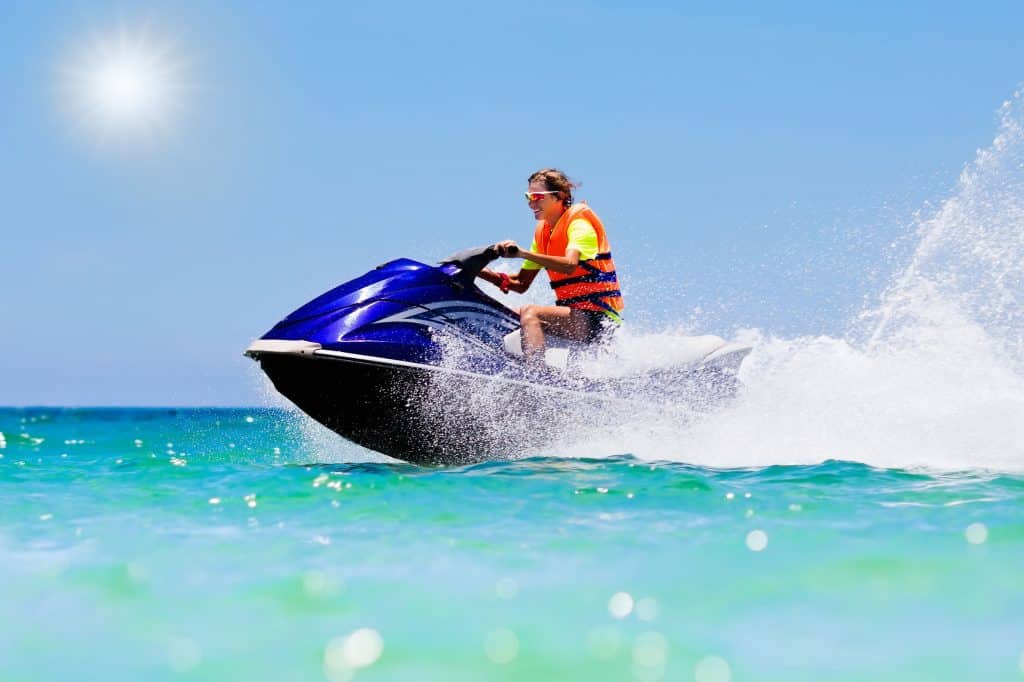
1. Price
One of the first things that people usually consider when making a major purchase like a boat or jet ski is the price of the item. If you decide you can afford to purchase a boat or jet ski, then the next step is to figure out just how much boat or jet ski you can afford.
When it comes to both boats and jet skis, there is a wide range of prices. Jet skis are not cheap by most people’s standards, but they are generally cheaper than boats.
The most expensive of the newest stock jet ski models will cost about $20,000. That is definitely a significant amount of money, but they do get much cheaper than that. You can buy brand new models from this year starting at about $6,000.
When it comes to boats of similar capabilities, the prices can go up very quickly. When it comes to new boats from the most recent year, prices will be starting where the jet ski prices left off. New boats will start at prices closer to $20,000, and from there the sky is the limit. The price of a new, high-end jet boat can easily reach $100,000.
Price is also pretty different when it comes to used models. A few years can knock a thousand dollars off of the price of a jet ski, but used boats that are a few decades old can still cost tens of thousands of dollars. This will depend on the type of boat, of course.
2. Size
Anyone who has ever seen a jet ski, or personal watercraft, knows that it is much smaller than a typical boat. In fact, to be considered a personal watercraft, a vehicle cannot be more than 13 feet long, according to the United States Coast Guard.
Boats that are commonly seen on a lake or offshore can range anywhere from 15 feet to 40 or more feet long. There are pros and cons in both directions when it comes to size. It all depends on what you want to get out of your watercraft.
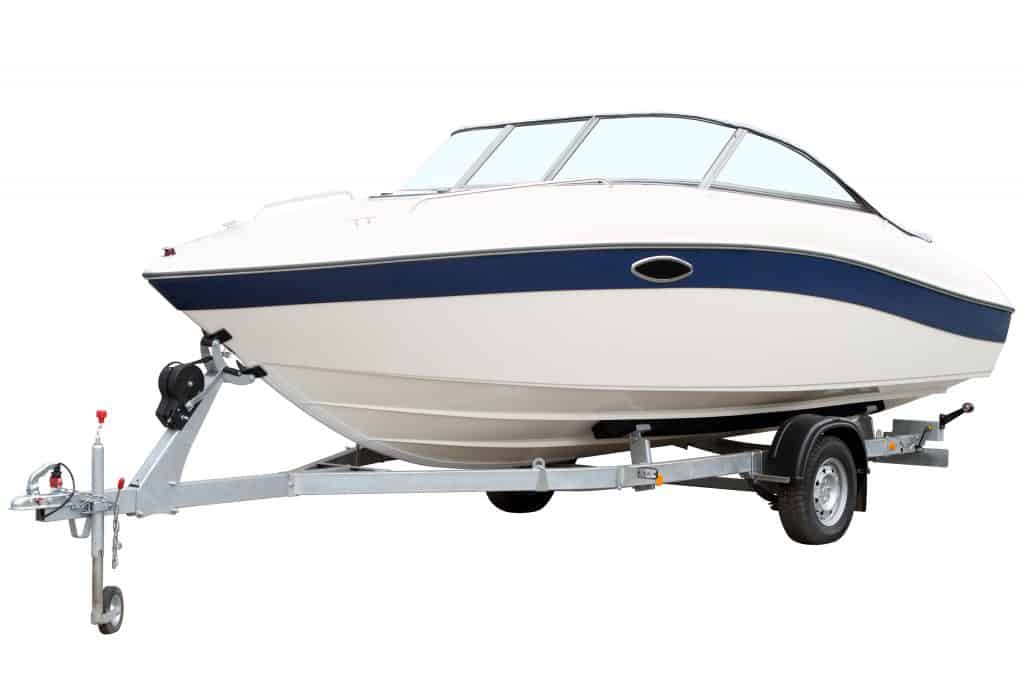
3. Weight
The smaller size of the personal watercraft means that it weighs much less than most boats. The heaviest jet skis will weigh a little over 1,000 pounds. The fact that they are so lightweight means that moving them around is not too difficult. Even most sedans can pull 1,000 pounds without much trouble.
A larger boat, on the other hand, will easily weigh 4 or 5 times that much and even more. The heavyweight means that if you are going to be towing it around, you will need to have a vehicle powerful enough to do so.
If you already own a large truck or SUV, this might not be an issue for you. But if you do not, it might not be worth buying a new truck to tow around your new boat.
4. Storage
Size has a lot to do with storage as well. If you want to keep your watercraft at home, you will need a place to put it. Usually leaving it outside on the driveway is not the best option, as your neighbors might consider it an eyesore and complain to the homeowners’ association, or it runs the risk of being vandalized or damaged in some way.
So the question is, do you have enough garage space for this thing? A jet ski is able to fit into a small garage and takes up a little more space than, say, a large riding lawn mower. A boat will easily take up an entire garage. If you have a whole spare garage then again, maybe it is not a big deal. But if your space is more limited, going with the smaller option could be smarter.
Another option for storing a watercraft is renting a spot at a marina. This is a good option if there is only one lake or beach area where you know you will do all of your riding.
The cost of storing boats and personal watercraft in dock spaces at a marina usually depends on the size of the watercraft. The prices vary by the marina, but for the most part, the price is the same for any personal watercraft.
If a boat is not too much larger than a personal watercraft, the price could be the same. But, the larger the boat gets the higher the price will be.
5. Uses
The saying “Anything you can do, I can do better,” is almost applicable in the case of boats vs jet skis, except it would be more like “I can almost do anything you can, almost as well.”
Jet skis have come a long way since they first became popular in the 70s in terms of what you can do with them. Jet skis can now be outfitted for fishing, towing sports like water skiing and wakeboarding, and even for just focusing on longer, more leisurely rides. But when it comes down to it, boats really do take the cake.
The size advantage that boats have means that you can get a lot more stuff onto them. If fishing is your thing, you will be able to keep a much larger haul on a boat. If you want to tow family or friends around, you can bring more people at a time. You can even have 2 tubes or 2 wakeboards out at the same time.
When it comes down to it, boats are able to handle more of whatever it is that you do, with the exception of one thing. Jet skis are much better if you are into performing tricks. When was the last time you saw a pontoon boat do a backflip? Hopefully never. However, some jet skis are great for that.
So if you are looking to get into tricks, the choice is easy. But if you have other things in mind, it might not be so simple. It will depend on whether you are after the maximum activity potential that a boat offers, or if you value quick and simple in-and-out style fun that a jet ski allows for more than a boat.
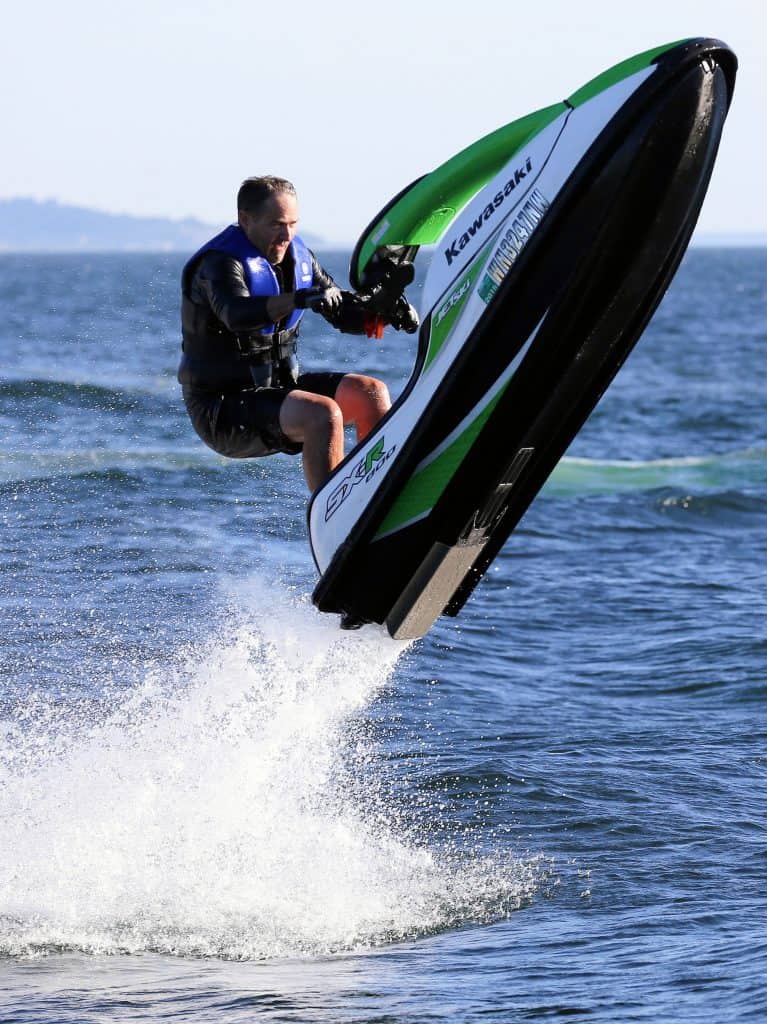
6. Variety
This question is a bit of a no brainer. When it comes to jet skis there are exactly 2 varieties: the variety that you ride standing up and the variety that you can ride sitting down. Of course, some jet skis are geared to a more luxurious ride while others focus on speed, but they are largely all capable of the same things.
Boats are a different story. There are probably more types of boats than I can probably count on my fingers and toes. There are jet boats, hovercraft, bass boats, yachts, sailboats, and wake boats just to name a few.
When it comes to all of these different types of boats, the advantage of choosing one will mean that it specializes in that area and there won’t be a better choice. A wake boat will be better for wakeboarding or surfing than a jet ski could ever hope to be.
However, that also means that you will have to stick to that kind of use. A pontoon boat might be able to fit 15 people for a party or big fishing trip, but its maneuverability will be limited compared to other types of boat.
Jet skis might not be able to fit 10 people, but they can do a bit of everything. You could even use one for fishing, towing, and doing tricks all in the same day. Because of this, jet skis could be seen as a sort of jack of all trades.
7. Customizations
As mentioned above, when it comes to activities jet skis have the edge for customization. The same model could be outfitted for fishing, tricks, or racing. In contrast, a sailboat is not going to throw a good wake or reach crazy speeds.
When it comes to purely aesthetics, jet skis and boats are both good canvases to work on. You can paint your own designs and add decals on either type of craft.
But if you are really wanting to catch eyes and turn heads, a boat would be a better attention grabber. The much larger hull means that you can add more and it will be more easily seen, even at a bit of distance.
8. Capacity
Another easy victory for the boat is passenger capacity. A jet ski can usually fit 3 people, maybe 4 if they are small enough and the jet ski is rated for that many. Many boats easily and safely accommodate twice that, if not more.
The advantages of fitting more people include not having to make trips back to shore to switch out riders and having more fun altogether.
If you plan on using your watercraft alone or with just one other person this might not be a big deal, but if you have a larger family or you want to bring friends out with you to join the fun it is something to take into consideration.
9. Fuel Economy
The fuel economy of jet skis and boats can both vary greatly depending on a number of things. Speed, water conditions, and weight carried all can have an effect on how much gas is used. But generally, jet skis have more fuel-efficient engines.
Fuel usage for watercraft is measured in gph, or gallons per hour, instead of miles per gallon.
The average jet ski will use about 6 gph if it maintains a speed of about 35 mph. A larger boat with a larger engine will use about 13 gph at that same speed.
Some jet skis with more powerful engines will go through more fuel than that, but again it depends on a lot of factors. In general, jet skis are a better choice for fuel economy.
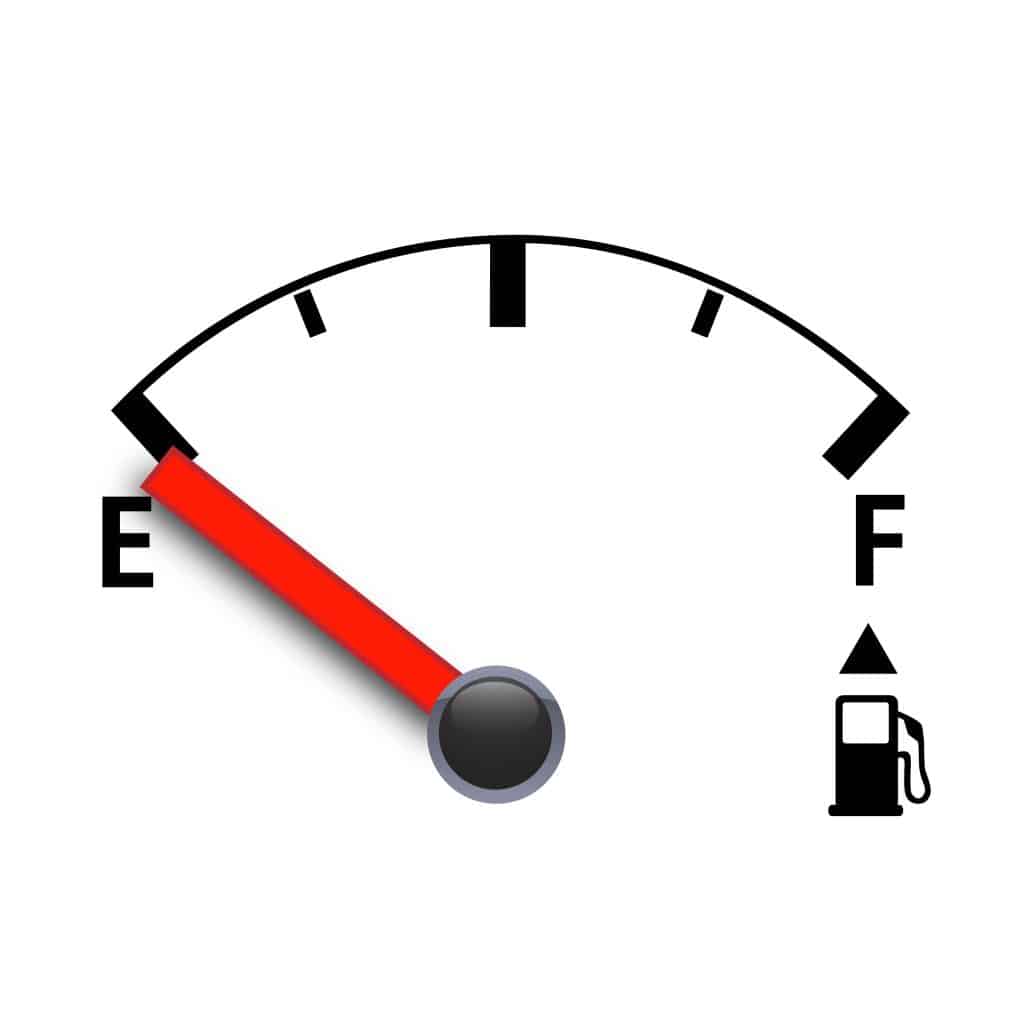
10. Fuel Capacity
The larger size of the boats once again puts them ahead in this category.
Jet skis on the larger end of the spectrum will usually have a maximum fuel capacity of about 20 gallons. This is a pretty good amount, and when you combine it with their impressive fuel economy it means that you can spend a long time on the water.
However, boats will have a fuel capacity of anywhere from 50 to 80 gallons. Even if they are not quite as fuel use friendly, the larger tank means that you could last longer out on the water.
Another advantage of the size of larger boats is that you can carry extra fuel. Whereas on a jet ski you may be able to attach 1 extra can of gas, on a boat you could bring a lot.
11. Safety
Safety is important when it comes to any kind of water activity. The rules of safety are largely the same for boats and jet skis. Everyone participating has to wear a life jacket and the same rules of interacting with other watercraft apply.
Just because a jet ski is smaller does not mean that it is inherently less safe. In fact, the fact that jet skis no not have external propellers makes them safer than many boats that do in that regards. Jet skis are also very stable and as long as they are handled with caution, capsizing does not have to be a big concern.
Where the small size of a jet ski would put it at a disadvantage is in the event of a collision with another watercraft. If a boat twice the size of a jet ski ran into it, the risk and severity of injury would likely be greater for the operator of the jet ski.
Safety depends almost entirely on the persons operating any watercraft, so that is where the focus should be regardless of what type of watercraft it is.
12. License to Drive
This is a pretty easy section. Some people are led to believe that since jet skis are smaller than other types of boats, you do not need a license to operate one. This is not true. Jet skis are considered the same as boats when it comes to licensing, so be sure to get certified before going onto the water.
Licensing laws are different from state to state. Some states require that everyone who operates a watercraft take a course and pass a test, while in other states only children under 16 need to. Make sure that you know the laws specific to where you will be boating, and understand that those laws are the same for boats and personal watercraft.
13. Insurance
Insurance regulations for boats and personal watercraft will also vary from state to state. Some may require insurance while others may not. Check the state laws first to see if it is required. Even if it is not required, it is a good idea to insure such high-value items.
When it comes to the price of insurance, it can range from a few hundred dollars a year to over 1,000. The price can depend on a number of things, like the size of the vehicle, what you will be using it for, and your personal history.
With these factors in mind, jet skis will likely be less expensive to insure due to their size.
14. Power
If all you care about is speed and power, a boat may be the way to go for you.
Jet skis are capable of impressive speeds of up to 60 mph, but the larger size of boats means that they can sport much larger and more powerful engines. As always, with more speed and power comes a higher price tag.
15. Comfort
As mentioned above, jet skis have made large strides over the decades when it comes to performance and luxury. Seats used to be hard plastic, but are now much more comfortable. You can ride for longer than someone could 20 or 30 years ago, but it still can get old.
On a jet ski, you are in basically the same position the whole time. But on a boat, you can stand up, walk around, and even lay down for a bit if you need to switch things up. The jet ski is at a disadvantage here as you don’t even have a seat back to lean on.
16. Maintenance
Periodic maintenance is important with watercraft just like it is for road vehicles.
Jet skis are usually cheaper to have work done on because they are smaller and take less time. The fact that they are smaller and have fewer parts to them than many boats means that it might even be easier to learn to fix small problems yourself.
Overall jet skis are easier to take care of and there is less to go wrong.
17. Cleaning
Cleaning a jet ski is also much easier thanks to the size. A large boat can take a couple of hours to thoroughly detail, but a jet ski can be taken care of in less than an hour in my experience.
18. Availability
Something to consider when looking to purchase is what is available in your area. Jet skis and boats are often sold in the same stores, but some dealerships might have only one or the other.
There is no obvious advantage when it comes to finding what you want. It will depend on where you are and how far you have to go for it.
19. Accessories
This is another section where there is no clear advantage. Boats and jet skis both have pretty much the same types of accessories available for purchase. These include coolers, fishing pole holders, lights for night riding, and speakers.
Where boats do have an edge is that because of their size, they are able to hold more and bigger accessories. I have been on boats with crazy sound systems that you just won’t see on a jet ski.
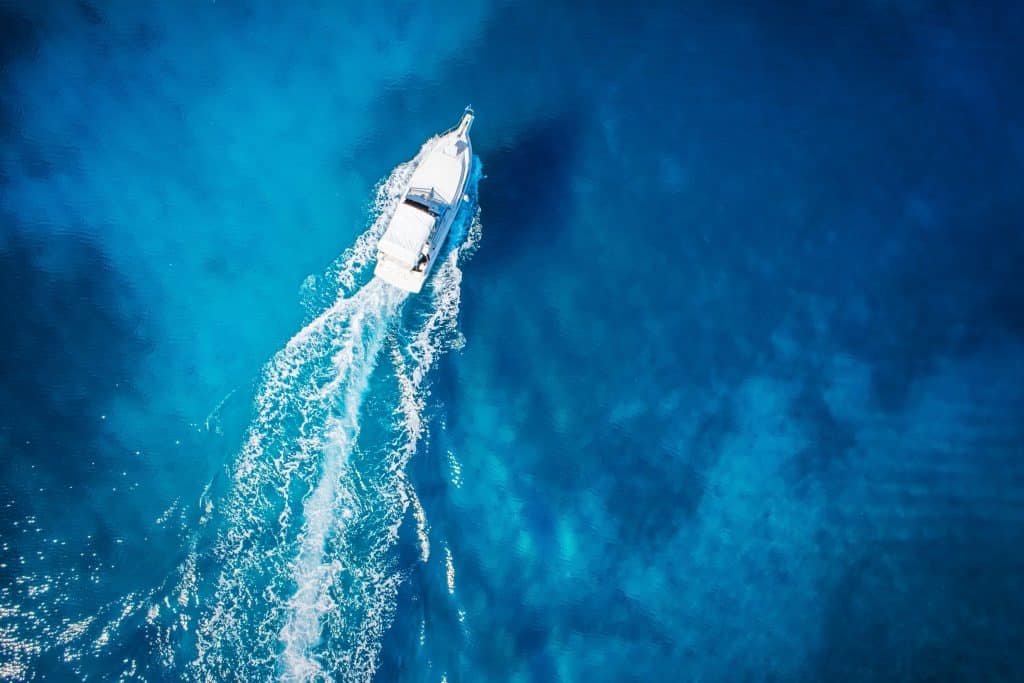
20. Exercise vs Leisure
Boats and jet skis offer different levels of physical activity.
Boats require almost no physical ability to drive. The fact that you are seated and using a wheel makes it just like driving a car.
Jet skis require a little more physical involvement. You have to maintain good posture through sudden acceleration, deceleration, and sharp turns. This means that you will be using a lot of core strength as well as some leg and upper body strength.
So if you are into staying in shape, riding a jet ski can actually help with that.
21. Making the Decision
It all comes down to what you want and what best fits your lifestyle. You probably have a friend who would try to convince you that buying a boat is the only way to go because of the size and power.
You may also know someone who will tell you that a jet ski is better because they are cheaper, simpler, and easier to haul around.
These guidelines will help in steering you towards your decision, but whatever you decide, just make sure it is right for you. And most importantly, have fun and be safe!
